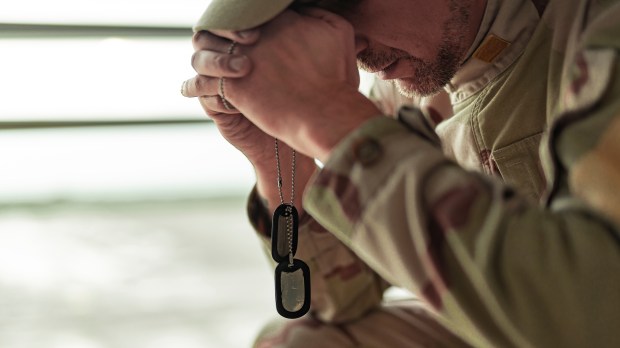“I don’t know how you do it.” This sentence gets the gold medal for sentences I hear when I say that my husband is leaving on deployment for four months. It’s closely followed by its runners-up: the passive aggressive, “But at the same time you knew what you were getting into,” and the ignorant-but-not-insignificant, “But you’ll see, it will pass quickly.”
Mathilde Margail — an influencer, fashion and lifestyle content creator, and military wife — regales us with her common sense humor, revealing the comments that exasperate all those who are confronted with the geographical separation and long absences of their spouses. She has a reply for all those who, out of sincere solicitude or lack of sensitivity, have already uttered these words (which are basically benevolent although clumsy): “I don’t know how to do it either; but the only suitable option I have is to deal with it. So yes, I manage, since I did indeed know all along what I was getting into; even though yes, I could do without it.”
Don’t live without taking risks
In February 2019, when she met the man who would become her husband, Mathilde knew about his commitment as a military doctor, which would involve deployments lasting several months, several times a year. Like St. Therese of the Child Jesus, she chose “everything” of the person she fell in love with, as part of learning to love.
“If in our lives we were to refuse to commit ourselves every time there’s a risk involved,” she says, “we wouldn’t commit ourselves much. We would deprive ourselves of a good swim in the ocean because of currents, waves, and jellyfish; of a trip because of a potential plane crash; of a job for fear of being fired; of property to escape property tax; of a walk in the mountains so as not to risk a fall; and of love, finally, because breakups and disappointments exist. As Mother Teresa said, ‘Life is an adventure.’ And St. John Paul II encouraged us by saying, ‘Do not be afraid!’ The saints invite us not to live a lukewarm life, without risk, without choice, and without difficulty.” The young wife continues wryly, “And then, while we’re at it, let’s only grant people with nice jobs with easy schedules the right to marry. Too bad for firefighters, bakers, and seasonal workers.”
Be a friend who consoles
Mathilde also has an answer for those who dare to make the banal commentary, “But you’ll see, the time will go by quickly.” Mathilde answers again that “four months, when you love, never goes by quickly. Even if you want it to. Ten minutes waiting in line is already too long, so you can just imagine 175,200 minutes of patiently waiting to be reunited with the one you love.”
To avoid these insensitive and awkward remarks, there’s only one solution: keep your unsolicited advice to yourself. If you want to console a friend in this situation, suggests Mathilde, “be a friend, a friend who is there, who listens, who helps, and who comforts. Friends, by their very presence, are a consolation, without trying to know at all costs what to say or what to answer in the face of the other’s sadness.”



